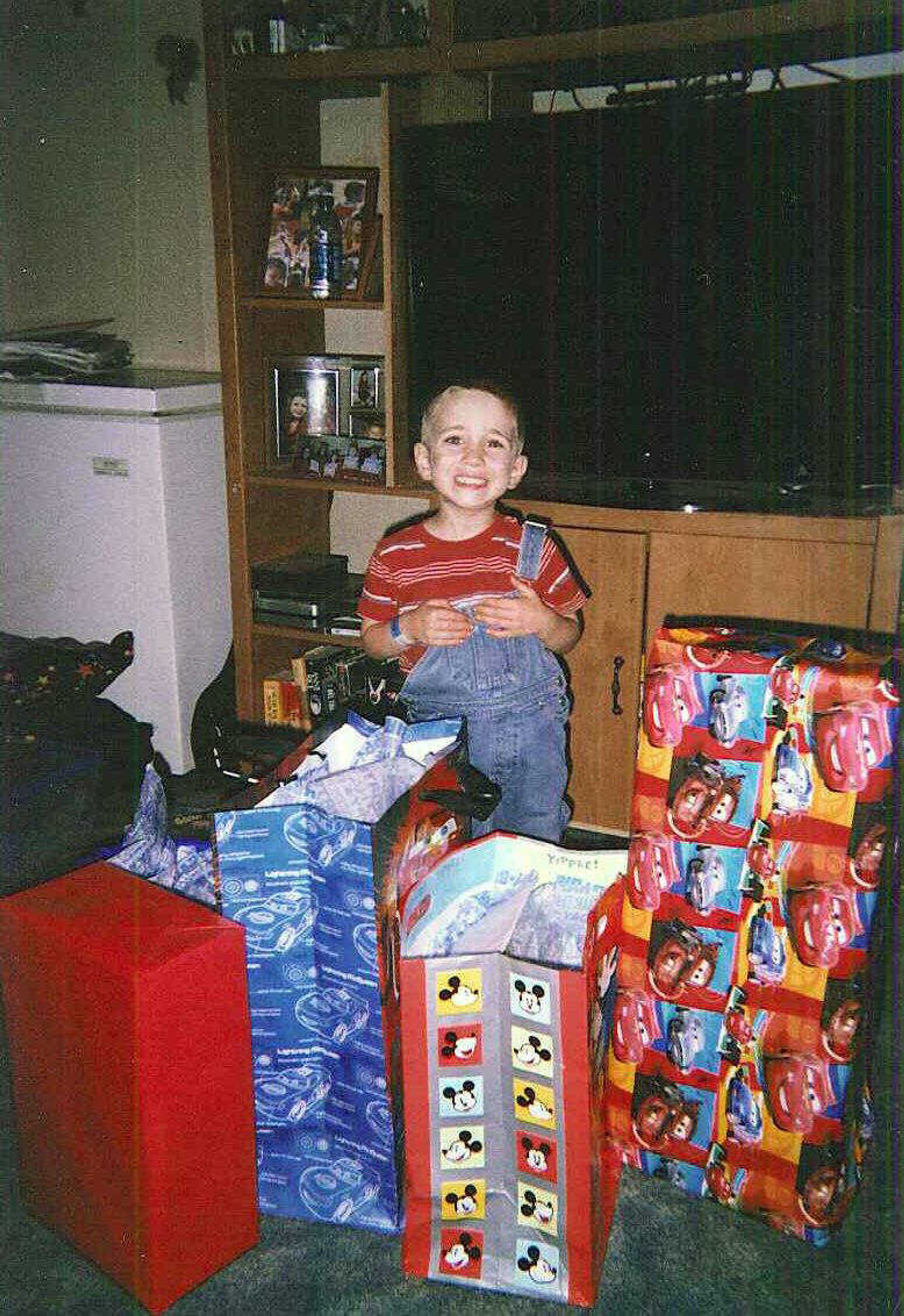Sacha Brown acquitted in murder of 4-year-old
JONESBORO, Ill. -- A Ware, Illinois, woman was acquitted Thursday of the murder of her former boyfriend's 4-year-old son. Sacha Brown, 32, had been charged with first-degree murder, aggravated battery of a child younger than 13 and concealment of a homicide in connection with the Dec. 11, 2011, death of Justin Hepburn...
JONESBORO, Ill. -- A Ware, Illinois, woman was acquitted Thursday of the murder of her former boyfriend's 4-year-old son.
Sacha Brown, 32, had been charged with first-degree murder, aggravated battery of a child younger than 13 and concealment of a homicide in connection with the Dec. 11, 2011, death of Justin Hepburn.
Although dishwashing liquid was found on Justin's mouth and clothing, autopsy results showed he died of a 4 1/2-inch skull fracture and had not ingested any of the soap. Prosecutors accused Brown of killing the boy, then staging the crime scene in an attempt to make his death appear accidental.

The prosecution wrapped up its case Tuesday in Union County, Illinois, Circuit Court, and on Thursday morning, Judge William Thurston granted a defense motion for a directed verdict acquitting Brown of the charges against her.
A directed verdict means the judge looks at the evidence that has been presented up to that point, considers it in the light most favorable to the prosecution, then decides whether a finder of fact could find the defendant guilty beyond a reasonable doubt based on that evidence.
"After looking at the evidence, after debating the evidence, after analyzing the evidence under the standard ... this court essentially goes, 'I don't know,' which by definition is reasonable doubt," Thurston said in granting the motion and acquitting Brown.
In considering a motion for a directed verdict, the judge essentially takes testimony and evidence at face value and then decides whether the prosecution's case is strong enough to have a chance of convincing a judge or jury of the defendant's guilt.
Brown and her attorney, Larry Karraker, opted for a bench trial, meaning her fate would have been in Thurston's hands regardless of his decision on Karraker's motion Thursday.
After Thurston announced the verdict, members of Justin's family left the courtroom quickly, and Brown burst into tears.
"I didn't expect that," Brown's father, Bobby Jackson, told his daughter as he hugged her and wept with her.
"I didn't, either," Brown replied.
Karraker seemed less surprised than his client.
"We knew damned good and well that she didn't do this," he said. "She loved this little boy. ... Justice is finally done. Finally served. We knew three years ago she was not capable of doing such a thing. She loved that little boy."
Union County State's Attorney Tyler Edmonds disagreed.
"I respect the court's ruling. That's the court's prerogative to make that determination," he said. "The most important thing I have to say is that I feel terribly for the family of the victim in this case. I believe that they were denied justice. I believe that the court's ruling was incorrect. I don't believe it was a proper application of the law."
Alice Jackson -- whose then-14-year-old daughter, Mia Scott, found Justin's body while she was babysitting him -- also expressed frustration with the verdict. She said she hopes other people will look at the case and take steps to prevent similar tragedies in the future.
"First off, I feel that they didn't give Justin any justice today, and I just want people to know that whether you're a parent or a caregiver, if you're overstressed or something, you need to call somebody -- a family member, a friend, a neighbor -- and ask them if they can come and get your child for a little bit -- that you're having a really bad day," she said. "... These young people, there's been too many of them that's been dying. Toddlers and babies can't protect themselves. It's up to us as adults to do that, and I believe that if they would call someone if they're stressed out, this kind of tragedy wouldn't happen."
Before announcing his decision, Thurston reviewed the testimony from each witness, outlining key points and discussing whether each point could support a guilty verdict.
He noted the legal standard for a directed verdict is not whether the evidence actually does support a guilty verdict, but whether it could.
Thurston also stressed his review of the evidence should not be construed as a statement on Justin or his legacy.
"Above, beyond and all, this is a tragedy when a little boy loses their life. ... In no way is there any disrespect to the legacy of the little boy," he said.
Among the key points Thurston mentioned in his review of the evidence:
- Other than testimony by Justin's father, the state presented no evidence indicating Brown had mistreated the child in the past.
- Evidence submitted in the case but not discussed in court showed damage to a bed frame in the room where Justin's body was found.
- A video played in court showed Brown telling investigators Justin had gotten up at night in the past and had fallen out of bed a few weeks before his death.
- Brown's father testified that Justin had been unusually quiet and sleepy the afternoon before he died.
- Under cross-examination, Chief Deputy Scott Harvel of the Union County Sheriff's Department said he did not believe Brown set out to hurt Justin.
- Investigators and prosecutors suggested Brown lashed out at Justin in frustration because she was overworked, exhausted and needed to sleep, but a series of text messages she exchanged with witness Anthony Lincoln a few hours before Justin died show she was awake and "engaging in a playful banter with a paramour, essentially," Thurston said.
- Given Scott's testimony and the layout of Brown's home, to stage the crime scene as prosecutors have suggested, Brown would have had to walk through the room where Scott slept and remove a bottle of dishwashing liquid from a counter near Scott without waking her.
- A timekeeper at Brown's workplace testified Brown sounded normal when she called in about 9 p.m. Dec. 10 to say something had come up and she would be unable to work an extra shift.
"The sufficiency of the evidence does not rise to the level that would support a verdict of guilty beyond a reasonable doubt," Thurston said.
Karraker said the verdict was the result of a weak investigation and what he previously has characterized as "a rush to judgment."
"This is what you get when you get a knee-jerk investigation of the case," he said. "They arrested her in under two days after the event. ... They never looked at anybody else."
But Edmonds praised investigators' efforts.
"I believe that the investigators did absolutely everything they could do on this case," he said. "They made a very strong circumstantial case, and under Illinois law, circumstantial evidence is certainly a way of proving guilt ... and in this particular case, there was no one else present in the room when the injury occurred. That's what the evidence showed."
Alice Jackson said the case has been hard on her daughter, who was reluctant to take any more babysitting jobs in the wake of Justin's death.
Jackson expressed sympathy for Justin's family and Brown's daughters.
"It's hard on all the youngsters that's involved -- the sisters, the half-sisters," she said. "It's not just the adults that's involved that's had a rough time. It's actually everyone involved, but there's younger aunts, there's his half-sisters, Sacha's girls, even ... everyone's had a hard time. They need to pray for everyone."
epriddy@semissourian.com
388-3642
Pertinent address:
Jonesboro, IL
Connect with the Southeast Missourian Newsroom:
For corrections to this story or other insights for the editor, click here. To submit a letter to the editor, click here. To learn about the Southeast Missourian’s AI Policy, click here.









